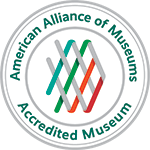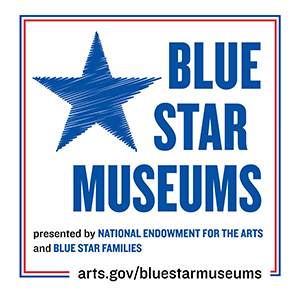Frequently Asked Questions
If you are interested in spending three months in residence, we encourage you to do a public factory tour and/or watch the available artist videos to get an understanding of the space.
Many artists-in-residence come to the program with no experience in these materials. We ask only that artists come with an open mind and eagerness to learn and work. Many artists say that Arts/Industry is like a master class in mold-making and casting, and they come away from their residency with a whole new set of skills.
Artists-in-residence receive 24-hour access to studio space, industrial materials, use of equipment, technical assistance, photographic services, housing, round-trip transportation, and a modest weekly stipend.
Arts/Industry encourages artists to work in their studios during the daily Monday –Friday factory tours so visitors are able to see the residency program in action. At the end of their residencies, artists are required to donate two of the works they created in the Arts/Industry program, one to the John Michael Kohler Arts Center and one to Kohler Co. The artist-in-residence and program director decide together on the works to be donated.
Arts/Industry provides housing in two homes within walking/biking distance of the factory campus. Each artist has their own private bedroom with shared kitchen, bath, and living room. Shared laundry facilities are also available in the basement. There is wireless Internet. Additional space for nonindustrial studio materials and practices is an option with permission from the program director.
Artists are welcome to ship materials or household items prior to their arrival. In Wisconsin, it’s a good idea to plan for all the weather extremes of the seasons. Good winter boots and layers are important for cold weather. Summers can be hot and humid despite the nearby huge freshwater lake, so lightweight clothing is important.
The artist houses can only accommodate the four artists-in-residence. Guests are allowed to visit and stay in the house for up to one week with prior notice and permission from the residency program manager. Past artists-in-residence have rented short term housing in the area to live with their family at their expense.
Arts/Industry cannot accommodate pets in the artist house or studios.
Guests are not allowed to work in the Kohler Co. factory. They can visit Monday to Friday between 8:00 a.m. and 5:00 p.m. with a valid guest pass.
The Arts/Industry studios are like no other residency studios! They are located right on the factory production floor in the Pottery and Foundry areas of Kohler Co.’s Kohler, Wisconsin, campus. Please note that the studios do not have walls or locking doors, and they are open to foot traffic and within view of active industrial manufacturing.
The Pottery is warm and humid year-round, an average of 80 degrees Fahrenheit, to provide consistent casting results and keep the clay from drying too quickly. In the summer, the temperature can hover in the 90’s with 70%-80% humidity. Opening windows and turning on fans is not permitted in some areas. Respirators must be worn in this climate. The studio contains communal glaze-mixing and mold-making spaces and personal space for two artists and the technician. Each studio space is approximately 20 x 20 feet.
The Foundry artist studio contains communal metalworking and woodworking spaces, a tool room, and personal space for two artists and the technician. Each artist receives approximately 300 square feet to use as their personal studio.
Both Pottery and Foundry studios are public places; tour groups and factory associates come through on a regular basis. The environment is quite loud due to manufacturing equipment and music.
The Kohler Co. factory is one of the most unique places for an artist residency program. It is a working-class, blue-collar environment and a union shop. Many of the factory associates do not have a background in art, but they are very interested in artists’ projects. People are generally polite and helpful, especially when giving advice on the best places for Friday night fish-fry and regional cuisine. Factory associates tend to value hard work, and they recognize artists who are willing to roll up their sleeves and get dirty.
In the Pottery, basic materials, tools, and PPE (personal protective equipment) are provided to artists. This includes casting benches, turntables, funnels, carts, brooms, limited buckets and splash pans, limited ware boards, tables, and basic hand tools.
In the Foundry, worktables, benches, and work carts are provided for each individual artist space. Basic hand and power tools for metal- and woodworking are provided in the communal tool crib.
The Pottery offers casting slip, plaster, glazes, limited amounts of stains, bench clay, scrap decals, and firing in the production kilns (cone 6 and 10 gas kiln). Silicone, lusters, specific glazes, and materials beyond those readily available are the responsibility of the artist.
The Foundry provides casting metal and molding sand. Some production molding flasks from Kohler Co. are available for artists’ use if they are a good fit for their pattern. Plaster and bench clay from the Pottery is also supplied. Scrap wood and steel are available, but specific materials are the responsibility of the artist.
Artists must consult with the studio technician prior to bringing their own materials. Materials must be approved prior to your arrival. If you have favorite tools, we encourage you to bring them along.
Kohler Co. uses vitreous china, a ceramic casting slip that has a glaze applied to the surface to make it impermeable to moisture. The vitreous casting slip is a buff cream color when fired without glaze, and has a surface similar to 400 grit sandpaper. It is not translucent and it is not plastic. The shrinkage rate is 11%.
Kohler Co. casts three types of iron: engine, enamel, and ductile.
- Engine iron is also called gray iron. It has a flaky graphite structure that causes it to have good machinability yet also causes the metal to be brittle.
- Enamel iron is another form of gray iron. It is specially alloyed to allow Kohler Co. enamel to properly adhere to its surface.
- Ductile iron has a nodular graphite structure as well as copper content. These aspects make it more resistant to impact and fatigue. There is less ability to machine ductile iron, but it does have more crack resistance.
Artists also have access to the brass die cast area. Due to the higher cost of brass, artists may need to cover their own expenses depending on use.
Maximum dimensions come down to personal lifting capabilities. Anything above fifty pounds requires a two-person lift in the factory.
Maximum dimensions for the Pottery are 96” L x 32” W x 31” H and/or 60” L x 60” W x 60” H. There is a hoist in each studio to assist with lifting and turning molds.
In the Foundry, capacities are large but with limitations. The casting ladles hold 1,700 pounds of molten iron and will lift to a maximum height of 60 inches. While artists’ castings typically come nowhere near these sizes, it is important to inform the production foremen if you will be requiring large amounts of casting materials. In addition, the sand mold mixer chute is 43 inches from the ground. Mold sections need to fit under this chute in order to be filled with molding sand.
Artists have access to Kohler Co. plating facilities used for plating Kohler faucets and other small fixtures. Each piece must first be inspected by the plating foreman to determine if it can be plated. Work cannot extend more than 18 inches from the plating racks and must be light enough to be manually installed (no heavier than 40–50 pounds).
Artists have access to Kohler Co. enamel ovens that accommodate a full-size cast-iron bathtub. The system is designed to enamel interior surfaces of tubs and lavatories. In-the-round enameling is not practiced by Kohler Co. and may require special rigging. Artists and the Foundry technician consult with a Kohler Co. specialist to assess the potential for their forms to be enameled on a case-by-case basis.
Kohler Co. uses a hot sifting method for enameled ware. The iron piece is heated in the enamel oven, then a specially formulated enamel frit is sifted onto the hot casting. Artists are allowed to experiment with other methods on their own, such as spray enamel or surface decoration.
At this time, we outsource 3-D printing due to production needs at Kohler Co. It is the artist’s responsibility to arrange for and pay for 3-D printing outside of the program.
Artists are required by law to wear specific PPE (personal protective equipment) while in the factory. This includes safety glasses, steel-toe shoes, hearing protection, cut-resistant arm guards and sleeves, metatarsal guards, hard hats, and a respirator. Pants must cover the ankles and shirts must have sleeves. Natural materials such as cotton are required in the Foundry. Expect studio clothing to become very dirty.
The factory is open to artists seven days a week, 24 hours a day. There are occasional factory shutdowns for maintenance. Artists are informed in advance of these shutdowns so they can plan accordingly.
Arts/Industry is a residency program originated and managed by the John Michael Kohler Arts Center, a nonprofit arts organization in Sheboygan, Wisconsin. It is hosted and funded by Kohler Co., a privately held plumbingware manufacturer in nearby Kohler, Wisconsin..
Though not completely necessary, it is helpful to have a vehicle for shopping purposes. Sheboygan and Kohler have limited public transportation; it is not as frequent or convenient as in larger metropolitan areas. We encourage artists to bring their own transportation if they are able. Bikes can be helpful.
Arts/Industry provides a full-time studio technician in both the Pottery and Foundry. The technicians teach and train artists in every step of the process so that artists eventually become independent to work in the factory on their project goals. Arts/Industry technicians do not make artwork for artists, rather, they are liaisons between artists and Kohler Co. associates. Arts/Industry technicians work Monday to Friday between 8:00 a.m. and 5:00 p.m.
Artists may hire an assistant to help facilitate their project, especially if the scope of the project is beyond one person’s capacity. Artists who bring an assistant with them are responsible for finding housing, providing safety equipment, and directly supervising the assistant. Assistants are allowed in the factory only if their supervising artist is present, and are limited to working on their supervising artist’s artwork.
A weekly stipend of $160 (paid biweekly) is provided for basic needs during the residency. The stipend covers essentials and consumables such as food and toiletries. We advise that artists-in-residence financially plan for an absence from home well in advance of their residency. Stipends are not provided for international artists. The Arts Center recommends that international artists consider any funding needs they will have and make arrangements for them before leaving home. In lieu of a stipend for international residents, the program will cover shipping costs to the amount they would have received in weekly stipend compensation.
Many Arts/Industry residents produce a large amount of work during their residencies. Artists are responsible for packing their work and the cost of shipping. Kohler Co. will ship artists’ work to their homes via freight directly from the factory. This is often much cheaper than fine art handling, but artists must be willing to accept the risk.
Sheboygan, Wisconsin, is a town of 50,000 people on the shore of Lake Michigan. It is a friendly, Midwestern town boasting many summer festivals, a world-class sailing course, and some great places to eat. The Village of Kohler has a population of 2,000 and consists primarily of the Kohler Co. factory, shops, and restaurants. It’s a quiet place that shuts down by about 9:00 p.m. every evening.
Most supplies must be ordered online. There is only one small art supply store in Sheboygan.





